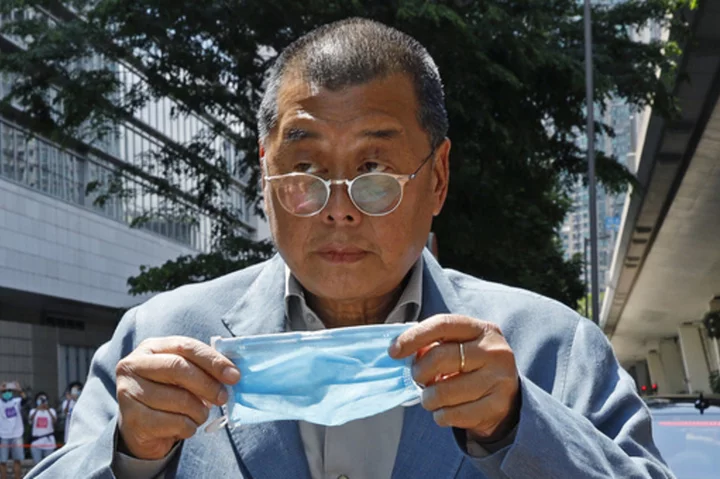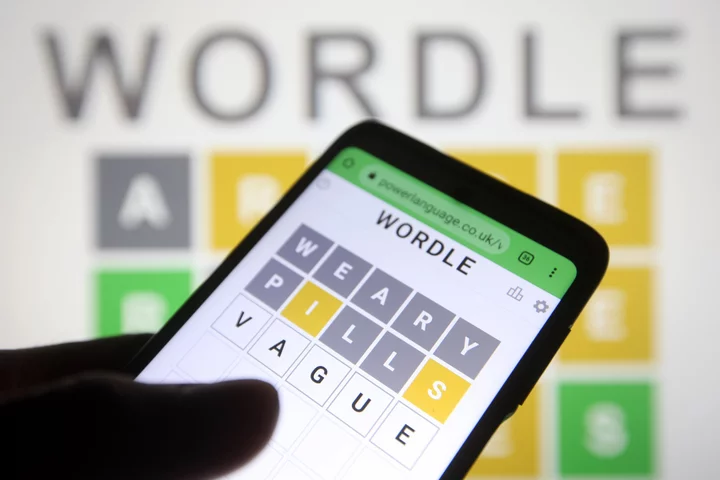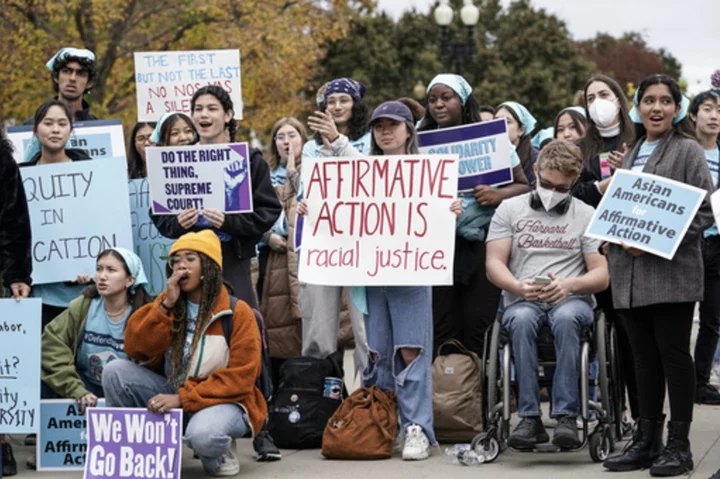HONG KONG (AP) — A Hong Kong court on Friday dismissed a jailed pro-democracy publisher ’s legal bid in his fight to use a British lawyer in his landmark national security trial.
Jimmy Lai, the 75-year-old founder of the now-defunct newspaper Apple Daily, faces up to life in prison if convicted under a National Security Law imposed by Beijing on the former British colony. In November, the city’s top court approved Lai hiring veteran lawyer Timothy Owen for the case. But the government voiced objection soon after and asked Beijing to step in.
Lai’s trial, originally scheduled to begin Dec. 1, was postponed until September as the city awaited Beijing’s decision.
He is accused of conspiring with others to call for sanctions or blockades, or engage in hostile activities against Hong Kong or China. He also faces a charge of collusion with foreign forces to endanger national security, and a separate sedition charge under a colonial-era law that is increasingly used to crush dissent.
The political saga over Lai’s choice of lawyer is widely seen as part of the city’s crackdown on dissidents following massive protests in 2019. Critics said Beijing’s intervention damaged the city’s judicial independence, which was promised to the city when it returned to Chinese rule in 1997.
In December, China’s top legislative body didn’t directly rule whether foreign lawyers who do not normally practice in the city could handle national security cases. But it said the power to decide belongs to the city’s leader and its committee for safeguarding national security.
The committee concluded that allowing Owen to represent Lai would likely pose national security risks and advised the director of immigration to refuse any new work visa applications by Owen that involve representing the media tycoon in the case. The director of immigration said his department would act in accordance with that advice.
Lai’s lawyers filed an application in April for judicial review, asking the court to quash the committee and director’s decisions. They argued that the committee’s duties relate to matters of general policy and coordinating “major works and significant operations.”
“There is no power or jurisdiction to determine specific questions arising from cases, let alone overturn judicial decisions,” they wrote in the application.
Robert Pang, one of Lai’s lawyers, insisted in an earlier hearing that the committee had overstepped its powers, saying the court had the power and the duty to ensure that the law was properly applied.
On Friday, judge Jeremy Poon ruled against Lai’s application, saying the Hong Kong courts have no jurisdiction over the committee’s work and the committee’s decision is not subject to judicial review.
The decision is fully within the committee’s power under the security law, as “interpreted by the interpretation,” Poon said in a written judgment.
Lai was sentenced to five years and nine months for a separate fraud case in December.
The National Security Law criminalizes acts of succession, subversion, terrorism, and collusion with foreign forces. It has led to the arrests of many prominent democracy activists and damaged faith in the future of the international financial hub.









